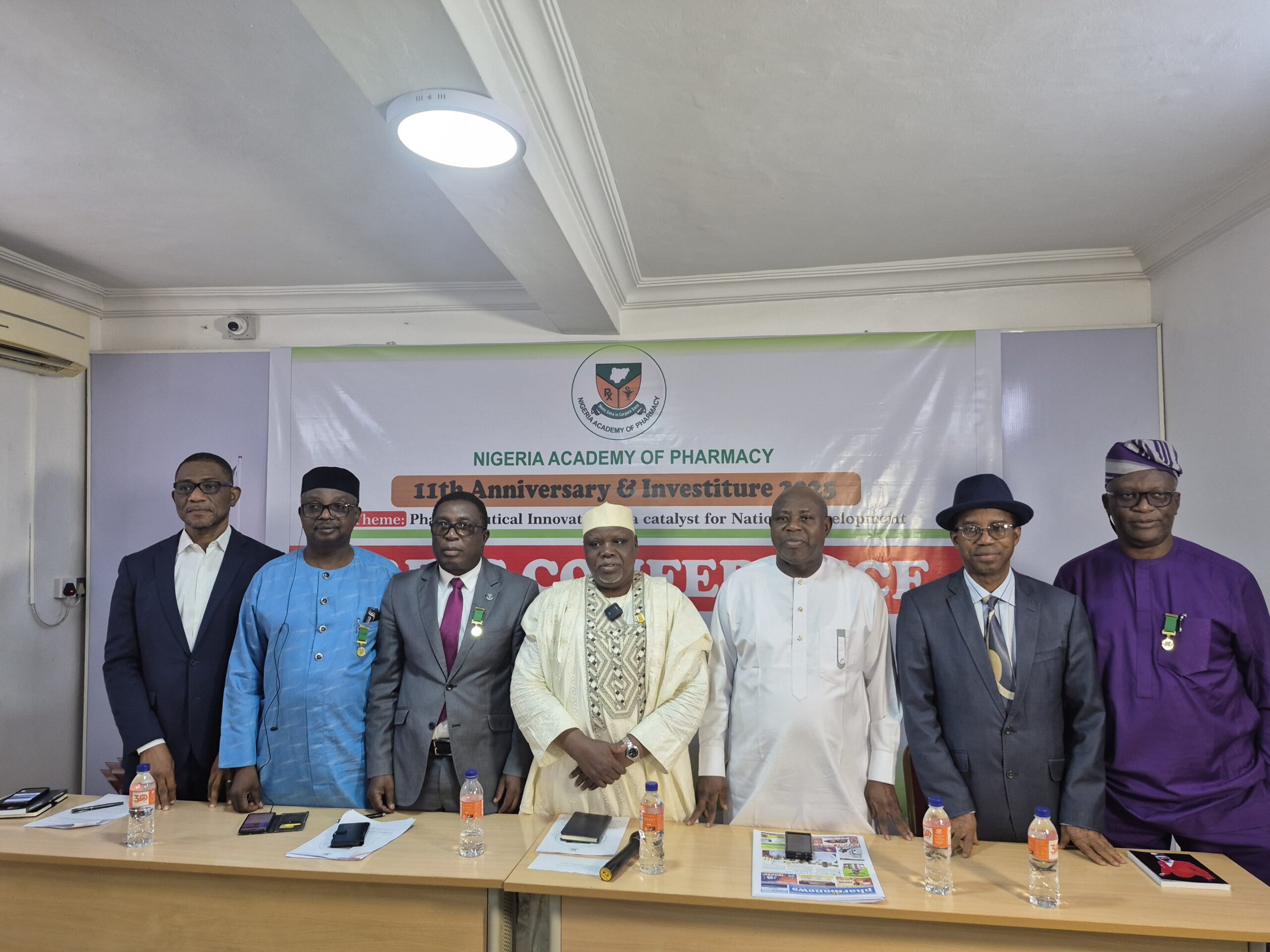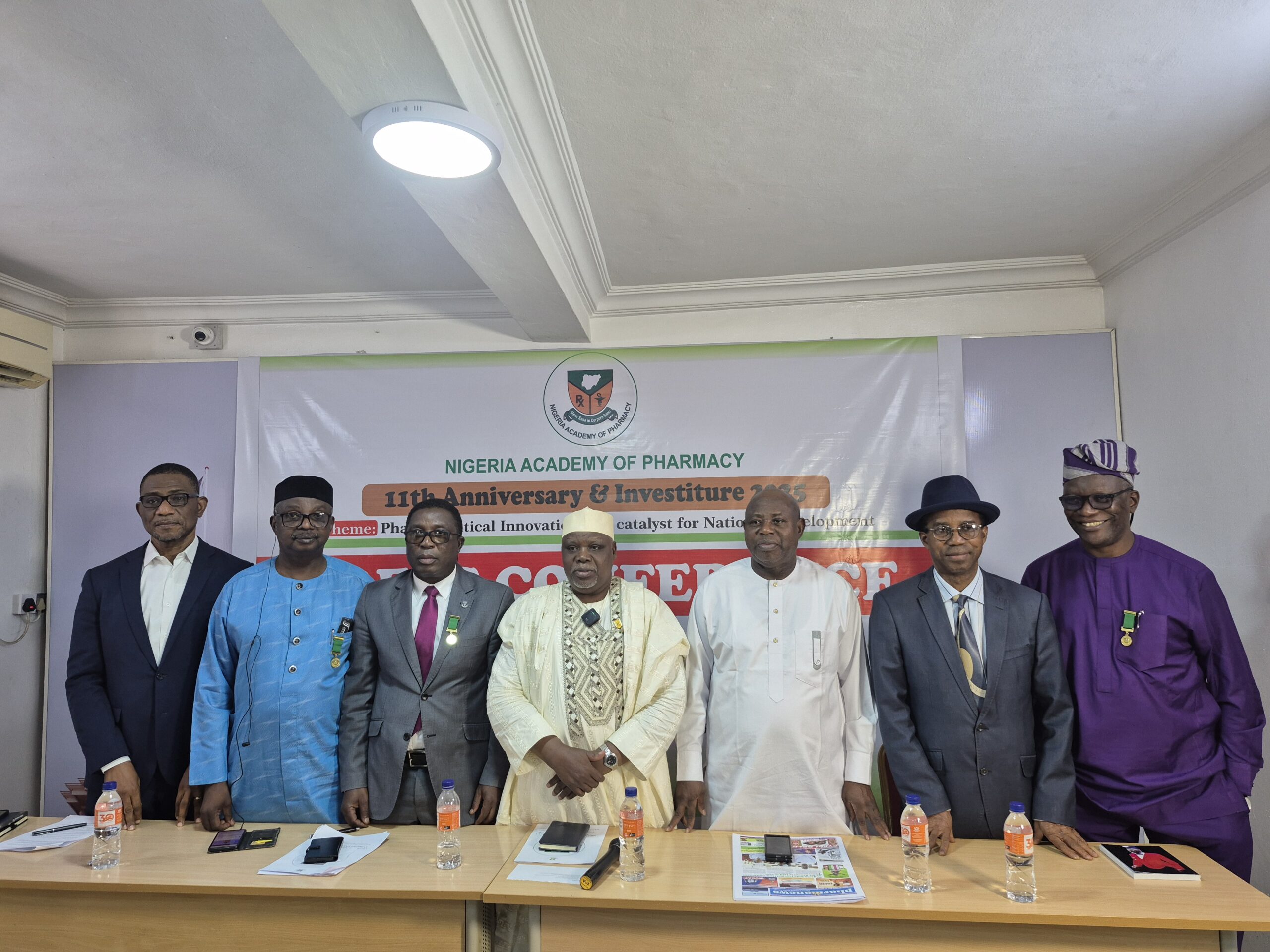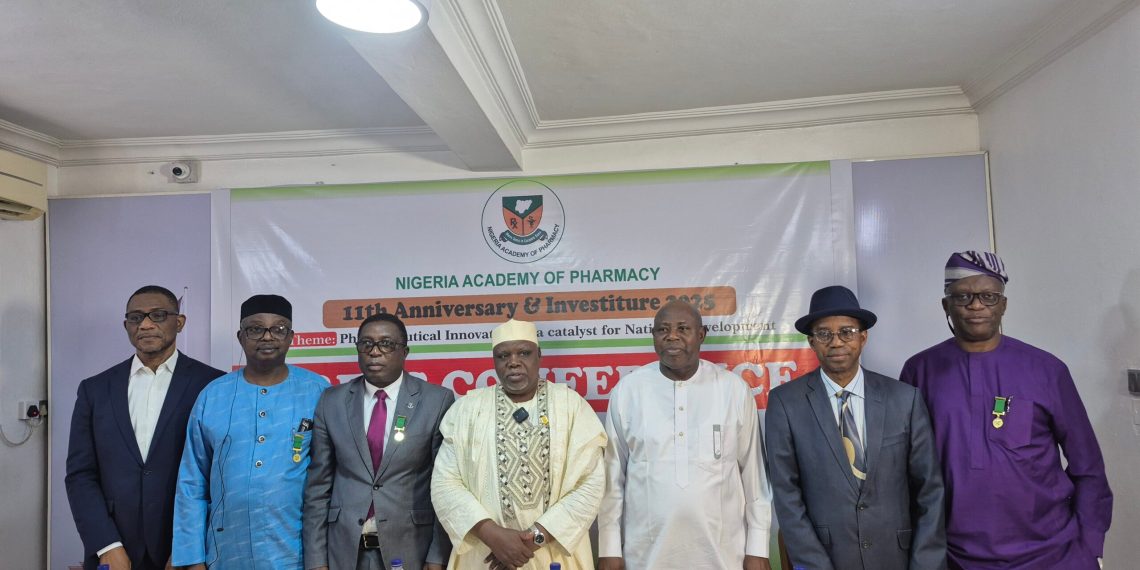Nigeria’s pharmaceutical industry faces significant hurdles that continue to restrict its growth and innovative potential, as revealed by the Nigeria Academy of Pharmacy. At a recent press conference in Lagos, the Academy’s leadership shed light on the intersection of inadequate infrastructure, limited funding, and persistent policy gaps that reportedly undermine the sector’s evolution and competitiveness.
Addressing journalists in preparation for the Academy’s 11th anniversary and its upcoming 2025 investiture, scheduled for October at the College of Medicine, University of Lagos, Vice President 2 Ahmed Yakasai emphasized the urgent need for strategic investments. He described how, without deliberate focus on infrastructure upgrades, innovation initiatives, and evidence-based policies, Nigeria’s pharmaceutical landscape will remain at a disadvantage both regionally and globally.
Themed “Pharmaceutical Innovation as a Catalyst for National Development,” the forthcoming events highlight wide-ranging conversations around boosting the industry’s contribution to social welfare and economic stability. Industry insiders and experts from across West Africa are expected to participate, reflecting the relevance of these issues for neighbors like Ghana and the wider continent.
Mr. Yakasai, former President of the Pharmaceutical Society of Nigeria (PSN), pointed out that most local pharmaceutical firms struggle to comply with international standards, citing basic infrastructure deficits as a main reason. Many factories and laboratories lack the necessary modern amenities to meet the requirements set by global regulatory agencies like the World Health Organisation (WHO), thereby restricting access to international markets.
He further elaborated that, in spite of a solid pool of skilled professionals, regulatory compliance remains out of reach for many indigenous companies. “It is not just about human resources, but about real investments in equipment, technology, and facilities,” Yakasai explained, referencing the high cost of compliance as a barrier for many Nigerian businesses. “Our companies often cannot scale up to meet demands or maintain quality assurance without reliable power, water, and specialized lab infrastructure.”
According to Yakasai, a chronic dependence on imported ingredients and materials further weakens the sector. “Critical raw materials like sanitary and phytosanitary-approved items and packaging materials such as expanded polystyrene continue to come primarily from China and India. This persistent reliance exposes deep gaps in Nigeria’s industrial capabilities.”
He advocates moving beyond import dependence by encouraging mergers and industry consolidation to pool resources and expertise. “We cannot build a robust pharmaceutical industry if every company is working in isolation. Creating facility-sharing models or joint ventures can help us achieve international production benchmarks and become relevant players in the global market,” he said.
Yakasai also highlighted the prohibitive cost of pharmaceutical innovation, indicating that the capital required by local firms is often out of reach. Citing a demanding N100 billion startup estimate for a state-of-the-art innovation facility, he argued that such costs would be a non-starter for most indigenous businesses in Nigeria. “It’s essential to create a supportive financing ecosystem and foster partnerships that make large-scale innovation feasible,” he insisted.
Turning a critical eye on current government practices, Yakasai criticised procurement policies that prioritize imported medicines over locally manufactured alternatives. “When the government continues to buy foreign drugs despite equivalent options produced by Nigerian companies, we undermine our own capacity building and stifle local industry development.”
He called for a more patriotic procurement approach: “Government must prioritize local manufacturers in its purchasing decisions if we are to strengthen production and safeguard our medicine security.”

Beyond its impact on access to affordable medicines, stronger pharmaceutical innovation could serve as a driver of new jobs and wider economic growth in the country, Yakasai noted. He cited examples from fast-rising markets across Africa to underscore the potential gains. “If the right investments and policies are put in place, Nigeria could become a pharmaceutical powerhouse in West Africa, generating valuable jobs and knowledge-driven growth,” he explained.
Speaking further, the Academy’s Director of Programmes, Lolo Ojo, added that the industry could significantly boost Nigeria’s Gross Domestic Product (GDP). “Look at some global pharmaceutical companies—last year, one company posted a turnover of $59 billion, which is even bigger than Nigeria’s entire national budget,” Ojo stated. “Imagine if we focused resources on local production and scientific research. We have the talent and the market, but need organized support to realize our potential.”
The Academy is now calling for quick investment in making Active Pharmaceutical Ingredients (APIs) locally, highlighting the strategic opportunity Nigeria has because of its petrochemical industry. Currently, though Nigeria is one of Africa’s major oil producers, it still imports most of the basic substances required to manufacture even simple medicines.
“If we can harness our petroleum resources to kick-start API production, it will bring us much closer to achieving true medicine security,” Yakasai asserted. Stakeholders from the industry echo this sentiment, pointing to neighbouring countries like Egypt and South Africa, which have invested heavily in domestic pharmaceutical manufacturing as a catalyst for industrialisation and health sovereignty.

As part of its forward-looking approach, the Nigeria Academy of Pharmacy is establishing a dedicated Research and Innovation Centre, designed to promote indigenous pharmaceutical research, offer valuable mentorship, and strengthen engagement in national health policy. According to Yakasai, the initiative is a key pillar of the Academy’s ten-year strategic plan (2025–2035), focused on advocacy, research, professional excellence, and enhancing public health.
“Nigeria is striving for self-reliance in its healthcare system and wants to diversify towards a more knowledge-based economy. Pharmacists must play a leading role in this transformation—both as innovators and advocates for quality care,” Yakasai said. The Academy’s roadmap reportedly aims to position the profession at the centre of national development efforts, ensuring a steady pipeline of talent and leadership.
The two-day anniversary and investiture event will also celebrate important contributors to the sector. According to the Academy, the programme will include the induction of 14 new Fellows, recognition of four Lifetime Achievement Award recipients, and conferral of six Honorary Fellows. A Valedictory Session will be held to honour the late Oludolapo Akinkugbe, widely respected as a mentor and a founding figure in Nigerian pharmacy. Speaking of him, Yakasai described Akinkugbe as someone who “healed through NOWAHALAZONE and left a legacy of integrity and service.”
According to the Academy, inspiring the next generation is a top priority. Through mentorship opportunities and recognition programmes, leaders hope to encourage young pharmacists to embrace innovation while upholding the values exhibited by trailblazers like Akinkugbe.
Yakasai reaffirmed NAPHARM’s commitment to important advocacy issues, including integrating pharmacists into primary healthcare delivery, improving remuneration standards, and creating clearer career advancement pathways within the industry. The Academy encourages regulators, academic institutions, and the media to work more closely together, aiming to bolster medicine safety, combat antimicrobial resistance, and ensure responsible drug use throughout Nigeria and the broader West African region.
How do you think Nigeria and West Africa can build a more innovative, self-reliant pharmaceutical sector? Are we doing enough to support local talent and industry? Share your thoughts in the comments and join the conversation!
Have a tip, opinion, or newsworthy story about healthcare, business, or innovation in your community? We’d love to hear from you! Email us at story@nowahalazone.com to get your story posted or to discuss story sales and submissions.
For general support, reach out at support@nowahalazone.com. For more updates on business, pharma, and local news, follow us on Facebook, X (Twitter), and Instagram!










